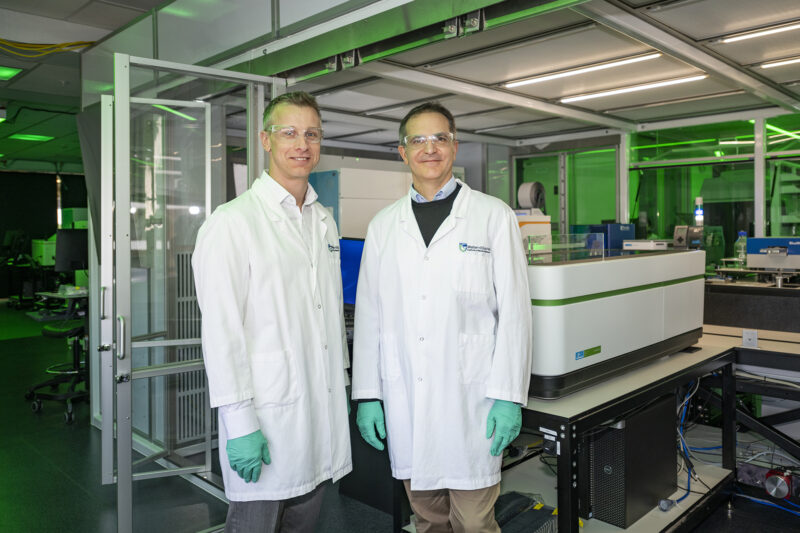Separate high-throughput screens for the small molecules were undertaken in parallel by WEHI and Partner A, said Dr Jeff Mitchell, head of the National Drug Discovery Centre (NDDC) at WEHI.
“Protein X is a very challenging target. By undertaking two screens using separate libraries and combining our results, our partnership added power to the drug discovery process. The hits across the two screens had common features, helping us to identify the most promising leads,” he said.
Professor Guillaume Lessene, head of the New Medicines and Advanced Technologies theme at WEHI, which includes the NDDC, said “The short timeframe from project initiation in 2017 to hit validation in early 2019 has shown the strength of this collaborative approach. Other innovative approaches to drug discovery were also developed to complement the results from high-throughput screening, relying on structural biology and medicinal chemistry approaches, and using novel scaffolds,” he said.
“This specific target, protein X, is considered ’hard-to-drug’ and WEHI and Partner A scientists have been thinking creatively together to overcome drug discovery challenges.”
The collaboration encompasses target validation, high throughput screening, hit validation, hit-to-lead and lead optimisation stages, and will conclude when a preclinical candidate is selected. Partner A will then be responsible for conducting clinical development and obtaining regulatory approval, as well as for global commercial activities. WEHI will remain a partner in the project, receiving milestone payments and royalties on global sales as well as offering research expertise as required.



